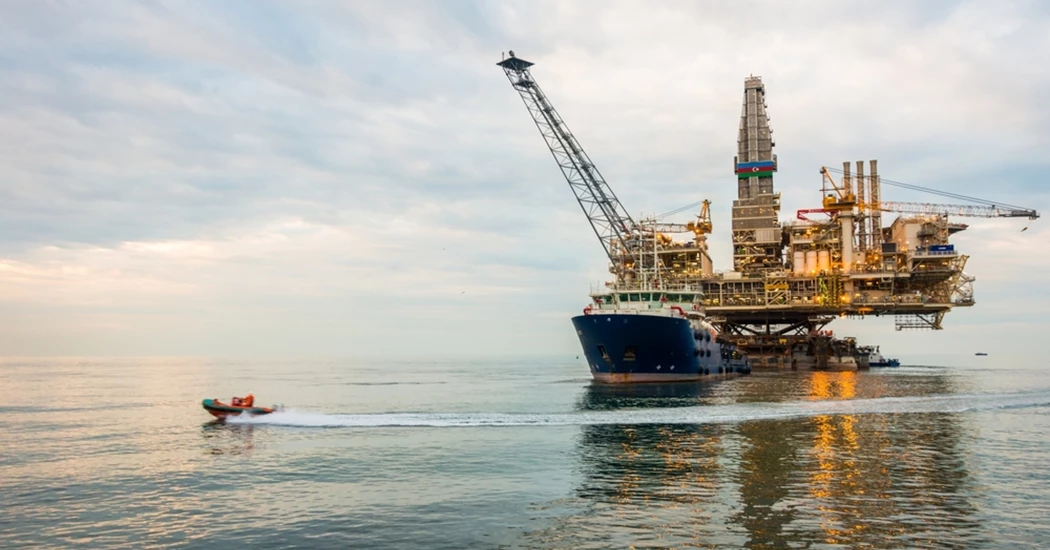SOCAR to hit net zero in extraction from own sites in 2022
Azerbaijan’s state energy company SOCAR aims to achieve net zero carbon emissions early next year through extracting oil and gas at its own sites, accelerating a trend that started nearly a decade ago to reduce the firm’s carbon footprint.
“In 2022 we will reach carbon neutrality,” Rafiga Guseinzade, SOCAR's first deputy president on ecology, told Reuters. “We have been working on that from 2010 within the framework of the World Bank's Global Gas Flaring Reduction (GGFR),” Guseinzade said about the company's goal towards carbon neutrality.
Another SOCAR spokesperson told the news agency that the reduction of emissions was only related to the process of extraction of hydrocarbons. Some emissions not directly related to output will still be generated.
In 2012, carbon emissions from SOCAR’s fields stood at 10 percent, but have declined to two percent recently. SOCAR produced 6.58 million tonnes of oil and 6.55 billion cubic metres (bcm) of gas at its own fields between January and October, or around a fifth of the country's total oil and gas output. It works with bp and several other Western energy companies in other fields.
Oil and gas continue to dominate Azerbaijan’s economy and provide most of its export and government revenue. While these resources have sharply raised the country’s living standards since the late 1990s and remain plentiful, Azerbaijan is a signatory to the Paris climate deal and aims to become carbon neutral by 2050.
In an energy policy review earlier this year, the International Energy Agency (IEA) recommended a gradual transition to competitive markets for Azerbaijan, with significant private sector participation and energy prices that reflect the cost of production. Such a transition would attract new market entrants and new investments, help to develop Azerbaijan’s significant solar and wind potential, and limit greenhouse gas emissions, it said.
SOCAR has been playing its part in that journey by shutting down mature fields and improving infrastructure and equipment to reduce emissions. “Thanks to the work we have done, it's possible to capture 300,000-600,000 cubic metres of natural gas, which had been effectively flared before for 20 years,” Guseinzade was quoted as saying by Reuters.
She added that SOCAR has been able to increase natural gas output by up to 2 bcm per year by using eco-friendly technology at Neft Daslari and Gunashli shallow water fields. SOCAR and bp have also pledged to develop green energy, jointly work in waste management and clean industry.
KEEPING THE ENERGY INDUSTRY CONNECTED
Subscribe to our newsletter and get the best of Energy Connects directly to your inbox each week.
By subscribing, you agree to the processing of your personal data by dmg events as described in the Privacy Policy.
More renewables news

Malibu Firefighters Make Gains on Blaze as Wind Warnings Persist

Longi Delays Solar Module Plant in China as Sector Struggles

SSE Plans £22 Billion Investment to Bolster Scotland’s Grid

A Booming and Coal-Heavy Steel Sector Risks India’s Green Goals

bp and JERA join forces to create global offshore wind joint venture

Blackstone’s Data-Center Ambitions School a City on AI Power Strains

Chevron Is Cutting Low-Carbon Spending by 25% Amid Belt Tightening

Free Green Power in Sweden Is Crippling Its Wind Industry

California Popularized Solar, But It's Behind Other States on Panels for Renters
















